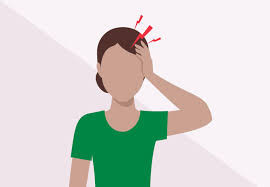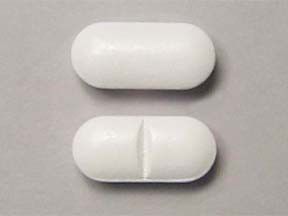Definition
Medication overuse headache (MOH), or rebound headache, results from the regular and prolonged use of medications to alleviate previously experienced headache pain.
MOH is also defined as a headache occurring 15 or more days per month in patients with a history of headaches, primarily due to using one or more medications to manage headache symptoms for three months or longer. This headache is not attributable to any other medical condition. MOH is frequently observed in middle-aged individuals and women, with a female-to-male ratio 3:1.
Causes
Pain relievers are generally safe when used for only a few days each month. However, the regular use of high doses of pain relievers in headache patients can increase the risk of developing medication overuse headaches, creating a vicious cycle.
Headaches may reoccur as the effects of the pain medication wear off. Withdrawal symptoms may also emerge, with the most common sign being worsening headaches, potentially accompanied by nausea and sleep disturbances.
Some individuals may continue to consume pain relievers to manage these symptoms. Excessive use of medication over time will eventually lead to more frequent headaches.
The precise reasons why excessive use of headache medication leads to new headaches remain unclear. Below are medications that have the potential to cause medication overuse headaches:
- Common Pain Relievers
Over-the-counter pain relievers such as acetaminophen or paracetamol can potentially cause MOH, particularly if taken in doses exceeding the recommended daily amount.
Read more: Paracetamol/Acetaminophen - Mechanism of Action, Contraindications, and Side Effects.
- Combination Pain Relievers
Medications combining compounds for pain relief, such as caffeine, aspirin, and acetaminophen, are frequent causes of medication overuse headaches.
Read more: Aspirin - Mechanism of Action, Contraindications, and Side Effects.
- Migraine Medications
Some medications used for treating migraine headaches, such as triptans and ergotamine, are associated with medication overuse headaches, carrying a moderate risk of causing this condition.
- Opioids
Opioids, a class of drugs acting on opioid receptors in the brain, possess sedative and pain-relieving effects. Opioids carry a high risk of causing medication overuse headaches.
Read more: Codeine - Mechanism of Action, Contraindications, and Side Effects.
- Caffeine
Consuming medications containing more than 200 mg of caffeine per day can potentially lead to MOH.
Risk factor
Factors increasing the risk of medication overuse headaches include:
A history of chronic headaches (e.g., migraine, cluster headaches, or tension-type headaches) raises the risk of developing medication overuse headaches. Frequent use of combination pain relievers for 10 days or more per month, especially if this persists for three months or more.
Symptoms
The location, characteristics, and severity of medication overuse headaches can vary among individuals, depending on the type of headache previously experienced and the medications used. Headaches may occur daily or almost daily, and the pain may awaken you in the morning. Additionally, although the headache may improve with pain relievers, the symptoms will reappear once the medication's effects subside.
Associated symptoms may include:
- Nausea
- Restlessness
- Difficulty concentrating
- Memory disturbances
- Irritability
Diagnosis
Doctors typically diagnose medication overuse headaches based on your headache symptoms and a history of using pain relievers more than 2-3 days per week. Additional tests are usually not required unless there is a change like the headaches, which may warrant further investigation to exclude other potential causes.
Management
Treatment involves discontinuing the excessive use of pain medications. Although there may be an initial period of worsening headaches due to the cessation of medication, symptoms will generally improve over time. Withdrawal symptoms may last from 2 to 10 days, though some symptoms may persist for several weeks.
Doctors will decide whether to abruptly stop the excessive medication or gradually reduce the dose. They may prescribe therapies to help alleviate headache pain and manage withdrawal symptoms.
Complications
Medication overuse headache can exacerbate existing chronic headaches and diminish the patient's quality of life. This condition can lead to anxiety and depression as patients may feel that their medications no longer effectively relieve their headaches.
Prevention
To help prevent medication overuse headache, if you experience headaches, take pain relievers as prescribed by your doctor and avoid excessive use. Additional preventive measures include:
- Avoiding Triggers
If you are uncertain about your headache triggers, maintain a headache diary with detailed descriptions of each headache episode to identify patterns and possible causes.
- Get enough rest
Establish a consistent sleep routine and reduce stress to maintain a positive outlook.
- Regular Meals
Start your day with a healthy breakfast and maintain regular meal times. Ensure adequate hydration and avoid caffeinated beverages.
- Regular Exercise
- Engage in physical activities approved by your doctor, such as walking, swimming, or cycling, which can release chemicals that inhibit pain signals to the brain.
- Maintaining Ideal Weight
Obesity may contribute to headaches; therefore, aim to maintain a healthy weight and consider weight loss programs if necessary.
- Quitting Smoking
If you smoke, consult your doctor for a smoking cessation program, as smoking is associated with a higher risk of medication overuse headache.
When to see a doctor?
Headaches can be a common occurrence, but it is crucial not to dismiss them, as some headaches may be caused by serious, life-threatening medical conditions.
Seek immediate medical attention if your headache:
- Is extremely painful and sudden in onset.
- Is accompanied by symptoms such as fever, decreased consciousness, limb weakness, or speech difficulties.
- Occurs following a head injury.
- Worsens despite rest and proper use of pain medication as prescribed by your doctor.
Looking for more information about other diseases? Click here!
- dr Hanifa Rahma
Medication overuse headaches - Symptoms and causes. (2020). Retrieved 16 September 2022, from https://www.mayoclinic.org/diseases-conditions/medication-overuse-headache/symptoms-causes/syc-20377083.
Migraine, A., migraine, T., & headache, M. Medication overuse headache - The Migraine Trust. Retrieved 16 September 2022, from https://migrainetrust.org/understand-migraine/types-of-migraine/medication-overuse-headache/.
Headache from Medication Overuse | AMF. (2016). Retrieved 16 September 2022, from https://americanmigrainefoundation.org/resource-library/medication-overuse/.




/Gabapentin.jpg)







